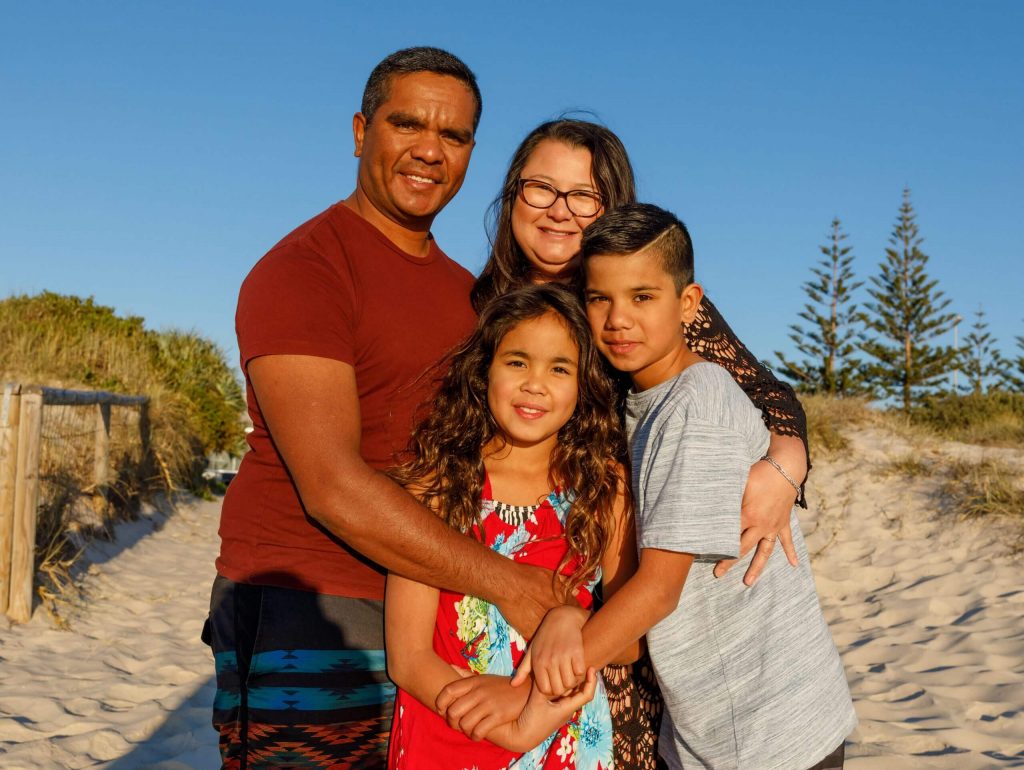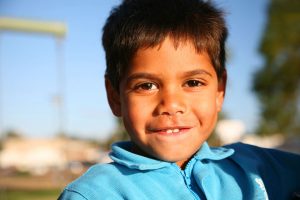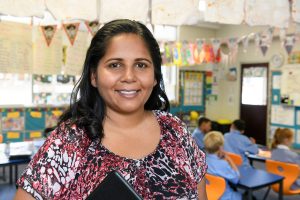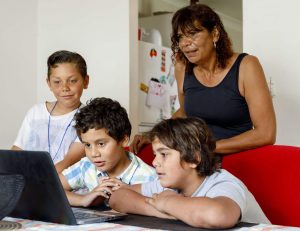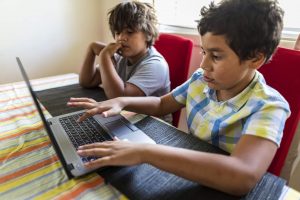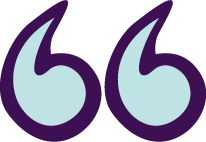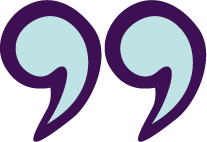This section of Rock Solid talks about:
Information can help you and your child make choices and get
the help you need, at every point of your journey.
Having a child with special needs is a long journey. Your child will need different kinds of help as they grow up.
No parent or carer can know everything they need for the journey ahead. The important thing is to know where to go for help and information when you need it.
Key terms explained
You will hear lots of different words and terms from people at school and the services that support your child and family. Here we explain what some of these words mean. If you come across something you don’t understand, you can always ask for more information.
Special needs and disability
Accessible
When people can get into a place, or take part in an event, program or activity, whether or not they have special needs. If everyone can get there and be part of something, then it’s accessible.
Assessment and re-assessment
A test or group of tests your child does to get information about their special needs. Sometimes an assessment can lead to a diagnosis, for example of a disability or a chronic illness. Re-assessment is done regularly for children with special needs at school, to check if their needs have changed.
Childhood Autism Rating Scale, or CARS
A common test for a child who might have autism. It tests things including how the child relates to others, moves their body, uses objects, sees, listens and communicates.
Chronic illness
Illness that a person often lives with for a long time, like asthma, arthritis, diabetes or heart disease.
Communication aid or device
Something a person uses that helps them communicate. It might be a book or chart with pictures or symbols, or an electronic device. Some children use an iPad to help with communication.
Department of Families, Fairness and Housing (DFFH)
The Victorian government department that helps people with housing, disability and children, youth and family services.
Development
When a child gets new or stronger abilities, such as to talk, walk, read, or to get along with others. Young children with special needs might not get a diagnosis yet, but might be said to have a ‘developmental delay’.
Diagnosis
A name for your child’s special needs, which might be one or more types of disability or illness.
Disability
A way of understanding one or more things about how your child’s body or mind works, which is different to most other people. Your child’s disability might mean that they sometimes need extra help to be well, move around, hear, see, learn, communicate or feel comfortable. Having a disability does not mean there is anything wrong with your child. The problem is that we live in a world that often ‘disables’ people, by not being accessible to them.
Disability services or organisations
There are many different kinds of disability organisations. Some can help your child with their development by providing therapy or equipment. Others can help you find information, get support or speak up for your child and family.
IQ Test
A test done to work out your child’s understanding level. A common IQ test is the WISC (see below). Your child’s score from this can tell you whether they can go to a specialist school, and what kind.
Learning disability or learning difficulty
This is when a child has the same ability to understand as most other children, but needs extra help with part of their learning. Learning difficulties can affect a child’s focus, or their reading, writing, maths, ability to understand instructions or questions, memory, speaking or other things.
National Disability Insurance Scheme or NDIS
The NDIS helps people with disability get the supports and services they need to live and enjoy their life.
Personal care
Help from a disability organisation, usually provided by a disability support worker, with day-to-day things like eating, washing, dressing or going to the toilet.
Respite, or respite care
Care for a child, young person or adult child with a disability, to give the main carer a break. Respite might be offered by different kinds of organisations, including some Co-ops, disability services and others. Sometimes you can get funding for respite care.
Special needs
One or more differences between your child and most other children, which affects what they need so they can be well, move around, hear, see, learn, communicate or feel comfortable. Special needs can include disability, chronic illness and mental health issues.
Vineland Adaptive Behaviour Scale, or Vineland
A common test for children who might have an intellectual disability, autism or developmental delay. It looks at things like a child’s behaviour and everyday living skills such as walking, talking, getting dressed and playing.
Wechsler Intelligence Scale for Children, or WISC
A common test for children who might have an intellectual disability or developmental delay. It can be done without reading or writing, and results in an IQ score, which represents a child’s ‘cognitive ability’, or understanding level.
People who can help
This is a list of names of different professionals who can help your child and family, including those working in schools and disability services.
These people work in schools, in the regional education department office, or in disability or early childhood intervention services. Some give their support for no cost – like advocates or staff based in schools. You might get government funding for your child to see many others.
Advocate or advocacy worker
Someone who helps you to understand your child’s rights, and to speak up about your choices for them. There are community and professional advocates. You can also advocate for yourself and your child.
Advocacy organisations or disability advocacy organisations
The Association for Children with a Disability (ACD) is a disability advocacy organisation. ACD gives people individual advocacy by supporting families to understand their child’s rights and speak up for them. ACD also does broader advocacy – speaking up for the rights of all children and family, and trying to make the system work better for people.
Community advocate
This is an Aboriginal term. A community advocate can be anyone in community that the family trusts and respects as acting in the child’s best interests. They might be appointed by other community members to visit families, and offer support.
Disability support worker
A worker, sometimes called a carer, who can provide personal care support to people with a disability.
Educational psychologist
A specialist who works with children having difficulties at school because of a learning disability, or behavioural, emotional or mental health problems. They often help with testing, to see if their school can get extra funding for a child. They can be based at the regional education department office, or in disability services. If your child’s school gets extra funding to help them, this can be used for them to see an educational psychologist.
Guidance officer or psychologist
A specialist who works with children with major behavioural or mental health issues in schools. They can work with the child, and with their school, parent or carer to advise on how to help them. They can be based at the regional education department office.
Koorie Education Support Officer (KESO)
A specialist worker based in the regional education department office who works with schools, and with children and families. KESOs and regional coordinators have replaced other departmental Koorie education staff previously based in schools.
Koorie Education Worker, Koorie Educator, Koorie education staff
A specialist worker, working in a school with children and their families. Schools might choose to employ a Koorie Educator, if they have a number of Aboriginal or Torres Strait Islander students and families in their school community.
Occupational therapist (OT)
A therapist who works with children whose disability affects how they do things in everyday life: hold a pencil, feed themselves, bathe or dress, go to the toilet, play and learn. At school, an OT can help work out what changes in the environment can help your child feel comfortable and work. Your child might get funding from the NDIS to see an OT. Some specialist schools have an OT on staff.
Paediatrician
A specialist doctor for children and young people.
Psychologist
A specialist who works with children with mental health or behavioural issues. They often work in health and disability services. Your child might get funding from the NDIS to see a psychologist.
Physiotherapist
A therapist who works with children with a physical disability, asthma, arthritis or pain caused by problems with joints, muscles or nerves. They work in health and disability services. Your child might get funding from the NDIS to see a physio. Some specialist schools have a physio on staff.
Speech therapist or pathologist
A therapist who works with children with special needs that affect talking and communication. They also help children who have trouble swallowing food or drink. They might be based at the regional education department office, or in health or disability services. If your child’s school gets extra funding to support them, this can be used for them to see a speech therapist.
Student Support Services Officer, or SSSO
A specialist based in an education department regional office who can work with a child directly, or give the school training or suggestions for how to help them. SSSOs include psychologists, guidance officers, speech pathologists, autism specialists, social workers and visiting teachers.
Support person
A support person could be a trusted friend or family member who is there to support you. It’s someone you can talk to, who can give you information and support, such as helping you prepare for a meeting with the school.
Visiting teacher
A specialist teacher who works with children with particular special needs. Visiting teachers teach children themselves when they visit, and also advise the school on helping them learn. There are visiting teachers for children who are Deaf or hard of hearing, children who are Blind or vision impaired, and children with physical disabilities. If your child’s school gets extra funding to help them, this can be used for them to see a visiting teacher.
Wellbeing Coordinator
A school staff member responsible for all students with special needs.
Schools
Aide or Education Support Officer
Someone who works in the classroom to help a child with special needs.
Alternative educational pathways program
Programs offered toward the end of secondary school, which can lead to TAFE or other training programs. Sometimes these are offered in school, sometimes in community agencies.
Alternative schools or programs
Schools or programs based on a way of thinking about how to help children learn that is different from most other schools. Some alternative schools or programs are especially for children who have learning difficulties, or emotional or behavioural problems.
Career Advisor
School staff member that can give advice on different education pathways for your child.
Curriculum
What children are taught at school, including the work they are asked they do in class and their homework.
Department of Education (DE)
Victorian government department that looks after schools, including services in schools that help children with special needs.
Koorie Education Learning Plan or KELP
A plan that schools make for every Aboriginal and Torres Strait Islander child, about how the school, child and family will work together to help the child achieve their best at school.
Learning plan, Individual Education Plan
A plan that school makes for a child with special needs about what they will learn, and the help they will get at school. The school should discuss your child’s plan with you early in the year, and in every Student Support Group meeting.
Mainstream school
A school where all children can go, including children with special needs, if their parents or carers choose. There are mainstream schools that are state schools, Catholic schools and independent schools.
Reasonable adjustments, or ‘adjustments’
Changes to how the school works, or the environment, that help your child learn and be included at school. They are seen as ‘reasonable’ if they don’t affect the school or other students too much. The law and government policy state your child’s right to ‘reasonable adjustments’.
Specialist school
There are specialist schools for children who are Deaf, for children with physical disabilities, for children with autism and for children with an intellectual disability. There are ‘special schools’, for children whose score on an IQ test is between 50 and 70, and ‘special development schools’ for children whose score is below 50. There are also some schools and alternative programs for children with behavioural issues, and for children who are having a lot of difficulties with learning.
Student Engagement Policy
Government policy that says schools must help children who miss a lot of school, are suspended, or who might drop out. It says the school must talk with you to plan how to help your child at school.
Student Support Group
Regular meetings that the school should have with you, to discuss how your child is going, what help they need at school, how you can help their learning at home, and any concerns that come up.
Transition
This is when a child moves from kindergarten to primary school, from primary school to secondary school, or from secondary school into other education or training. Children and families need a lot of help at these times, to sort out the right path and get the support for the next stepping stone in the child’s learning journey.
Transition report
A report written by your child’s kindergarten before they go to school, or by your child’s primary school before they go to secondary school. It has information about: what your child is good at, what they are interested in, what they need help with, tips for helping them learn, and what help they need at school.
Wellbeing Coordinator
A school staff member responsible for all students with special needs.
Zone, or school zone
The school you are ‘zoned for’ is the school nearest your home. Your child has the right to go to the mainstream school nearest your home. Depending on your child’s disability, they might also have the right to go to their nearest specialist school. If they are zoned for a specialist school and it is the right place for their special needs, then they can catch a special bus to school, with a staff member on board to help the children.
Pathways to support
These are some links to websites of other organisations that can support you.
Koorie Education Coordinators
You can contact the Department of Education and Training office in your region, and ask to speak to the regional Koorie Education Coordinator. They can arrange a Koorie Education Support Officer (KESO) to support your child at school.
Victorian Aboriginal Education Association Inc (VAEAI)
VAEAI is the peak Koorie community organisation for education and training, which provides information and support for community and education providers. Visit their website for resources and links, including about early education, kindergarten, school and post-school education.
Victorian Aboriginal Health Service and Victorian Aboriginal Co-ops
If you want to find out information about your child’s special needs or get a diagnosis, seeing a GP at your local Aboriginal health service is a good place to start.
Your local council
Your local council provides support for people with special needs, including practical support, Deaf Access and Metro or Rural Access Workers. Some councils such as Hume, Darebin and Sunraysia, have special groups and programs for Aboriginal families.
Commissioner for Aboriginal Children and Young People
Victoria has a Commissioner for Aboriginal Children and Young People, who can help support and speak up for children and young people’s welfare, safety and wellbeing, including those in out of home care and juvenile justice.
Office of the Public Advocate
The Office of the Public Advocate supports people with special needs and their families, including in relation to education pathways, guardianship and powers of attorney.
Victorian Equal Opportunity and Human Rights Commission
The Commission helps people resolve complaints of discrimination, sexual harassment, racial and religious vilification, and victimisation.
Association for Children with a Disability (ACD)
ACD can help you with information and support to speak up for your child and family. ACD provides a Support Line, resources and workshops.
Useful links
Koorie Education Coordinator contact details
Koorie education resources for educators
Victorian Aboriginal Education Association
Victorian Aboriginal Child Care Agency
Deadly Story

